A Consumer Guide to the Trailing Edge: January, 2012
Recycled Goods (#93)
by Tom Hull
Another short month. Worse, from my standpoint: all the Pan-African music I found here was previously found by Robert Christgau. True, I liked Vijana Jazz Band a bit more than he did, and Black Stars, Bachata Roja, and Pietra Montecorvino a bit less. But I didn't manage to check out the most obviously connected releases -- the two Syllart Afro Latin sets that he didn't bother with -- nor did I make much effort to track down anything more obscure. Of course, a big part of the problem is that I keep running into lack of access, and the lack of documentation for downloads chafes -- as do some of the booklets in the finished nonvirtual packages.
Everything else is jazz surplus, except for the Nat King Coles which I looked up while investigating David Murray's much superior tribute album. Even with the jazz, I didn't get much beyond what I had handy -- OK, the Michael Howell took some digging, but I didn't come up with Julius Hemphill's widely praised Dogon A.D., which is the sort of thing I should be covering.
Rhapsody does have a lot of Cole, and he would be a worthwhile series project. Some day, maybe.
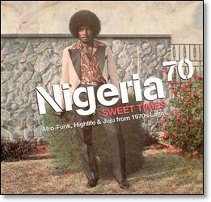 |
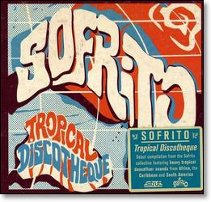 |
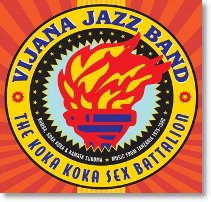 |
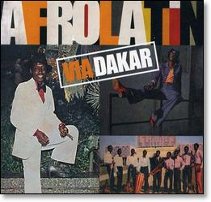 |
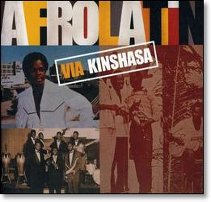 |
Black Stars: Ghana's Hiplife Generation ([2008], Out Here): I never tired of vintage highlife, but I'm not surprised that Ghana's youth has moved on, tapping rap in Twi or Ga or once colonial, now global English for hiplife or ragga for raglife. Don't have discographical details and don't recognize artists; all I've read is that this German label sampler covers the last decade plus, favoring the fast, bouncy ones which is always smart with foreign language music. Too scattered to cohere, but long enough to document an excursion you'd want a souvenir of. B+(***) [R]
Julius Hemphill/Peter Kowald: Live at Kassiopeia (1987 [2011], NoBusiness, 2CD): New old music from two dead guys, likely to be missed if you have any idea who they are, and all the more poignant for being so intimate. Kowald is the German bassist of the 20th century, always intriguing, not least solo -- his solo Was Da Ist is a Penguin Guide crown album. Hemphill was an alto saxophonist, best known for his harmonic explorations with the World Saxophone Quartet and Five Chord Stud, which left him underappreciated as a solo player. First disc here is all solo: three 6-8 minute ones by Hemphill, a 32:20 by Kowald. They feel like studies, something slightly above practice, nice examples of each one's art. Second disc brings them together in three duos, where they start out distinct and gradually merge. I'm sentimental enough to be tempted to rate this higher, but Hemphill plays a lot of soprano sax here, I haven't compared this to such similar fare as his duo Live in New York with cellist Abdul K. Wadud, and I'm unlikely to return to the solos -- although Kowald's is probably a better intro than the daunting Wa Das Ist. B+(***)
Nigeria 70: Sweet Times: Afro-Funk, Highlife & Juju From 1970s Lagos (1970-84 [2011], Strut): The key piece here is the LP-side-long "It's Time for Juju Music" at least in part because it's the one song I know, from the original LP by Admiral Dele Abiodun, but also because it makes a case for the music that is more than anthemic. Several other names were on my radar when I was looking for a broader context than King Sunny Adé and Fela Anikulapo Kuti, but most weren't. This doesn't show up the stars, but it flow with its silky guitars and resoundingly complex beats, and the booklet is worthwhile. A-
Sofrito: Tropical Discotheque (1976-2010 [2011], Strut): Compiled by London DJs, this breaks the mold of historical utility by mixing continents and decades, but it has a pretty good booklet explaining what's what, where and when it came from, and how it fits -- mostly the fit is programmed to the dancefloor. And it's not that eclectic: most cuts come from 1976-80, and the African tracks stand out. A-
Vijana Jazz Band: The Koka Koka Sex Battalion: Rumba, Koka Koka and Kamata Sukuma (1975-80 [2011], Sterns): Lots of print to parse on the cover, including the important "Music From Tanzania 1975-1980" -- places this within the context of Guitar Paradise of East Africa, but these folks are cruder, rougher, and a lot dirtier, and jumpy enough to remind me more of Nigeria's Heavy on the Highlife than the Zaïrean soukous their compatriots and competitors leaned on. A- [R]
Briefly Noted
Afro Latin: Via Dakar (1960s-80s [2011], Syllart, 2CD): Africa got late to the recording studio, by which time music of the forced African diaspora had washed back across the Atlantic, making one of its first stops in Dakar; one suspects the compiler just sifted through his old records for the most Cuban-sounding cuts and lined them up back to back -- Orchestra Baobab being the obvious place to start. A-
Afro Latin: Via Kinshasa ([2011], Syllart, 2CD): The lack of dates is annoying in what's otherwise a useful booklet, but I figure this starts in the mid-1950s and doesn't stretch far past 1970; the artist list is dominated by Docteur Nico, Le Grand Kallé, Franco, and Rochereau (only one cut attributed otherwise), cherry picked for the Afro-Cuban feel which presides over the first disc, while the second opens and is even more charming. A-
Bachata Roja: Amor y Amargue (1960s-80s [2011], IASO): Dominican son with a back country feel that can sound arch, but in doing so the singers all the more effectively draw out the bitterness of the title. B+(***) [R]
Nat King Cole: Cole Español (1958, Capitol): In his heyday Cole cranked out 3-4 records a year, so the idea of doing one in Spanish wasn't much of a gamble; the backing tracks were cut in Havana, Cole dubbed his vocals in Los Angeles, and Nelson Riddle fiddled a bit, all of which sounds more authentic, and accomplished, than it has any right to. B+(**) [R]
Nat King Cole: A Mis Amigos (1959, Capitol): Cut on tour in a studio in Rio de Janeiro, the Brazilian studio cats leading off with a sharp mariachi, then settling down into a cozy ballad; Cole is game, dashing, and smooth, even slipping in a couple lyrics in Portuguese, well before the bossa nova craze. B+(**) [R]
Corrie en de Grote Brokken: Vier! Het Beste van de Grote Brokken (1997-2004 [2011], Brokken): A studio-and-live sampler from the mid-career of Dutch guitar slinger Corrie van Binsbergen and her brass-rich, marimba-powered big band with boy-girl singers; where fusion tries to bind rock and jazz, she'd rather blow them apart. B+(**)
Julius Hemphill: Julius Hemphill Big Band (1988, Nonesuch): A rigorous avant-garde alto saxophonist, best known as founder of World Saxophone Quartet, run as a lab in harmonics; somehow got a major label to give him a stab at a big band, and came up with a typically cantankerous mix of stuff that coheres elegantly and drives you to the edge; for me, the power cut backs K. Curtis Lyle's spoken word rant. B+(**) [R]
Michael Howell: Looking Glass (1973, Milestone): Guitarist, cut a couple albums in the 1970s and not much else till I ran across him in a sideman role; thought he has poise and taste, already evident here both in the horn-studded grooves and in his more intimate moments trading thoughtful lines with pianist Hampton Hawes. B+(**) [dl]
Steve Lacy: Live at Jazzwerkstatt Peitz (1981 [2006], Jazzwerkstatt): The most important soprano saxophonist of the latter half of the 20th century, by a margin that's hard to conceive of, takes a few pieces solo, unfettered by anything but his imagination; the results are often astonishing, but the narrow range and stringent tone of the horn itself can wear on you. B+(**) [R]
Steve Lacy: Five Facings/Five Pianists (1996 [2008], Jazzwerkstatt): Duo pieces with five avant pianists; Marilyn Crispell warms him up; Misha Mengelberg pitches Monk tunes that are softballs for both; but Ulrich Gumpert pushes the soprano saxophonist into his top level, and Fred Van Hove joins him there, while the finale with Vladimir Miller winds down admirably. B+(***) [R]
Pietra Montecorvino: Napoli Mediterranea (2003 [2008], Lucky Planets): Italian actress-turned-singer, hard to tell how popular she is over there -- her rather dated website only shows two albums, and I've only found one more -- but with her raspy voice and a touch of raï in the rhythms I figure her for cabaret; this has flow, grace, and poise. B+(***) [R]
Legend: B+ records are divided into three levels, where more * is better. [R] indicates record was reviewed using a stream from Rhapsody ([X] is some other identified stream source; otherwise assume a CD). The biggest caveat there is that the packaging and documentation hasn't been inspected or considered, and documentation is especially important for reissues. But also my exposure to streamed records is briefer and more limited, so I'm more prone to snap judgments -- although that's always a risk.
For this column and the previous 92, see the archive.
Copyright © 2012 Tom Hull.